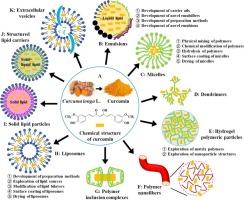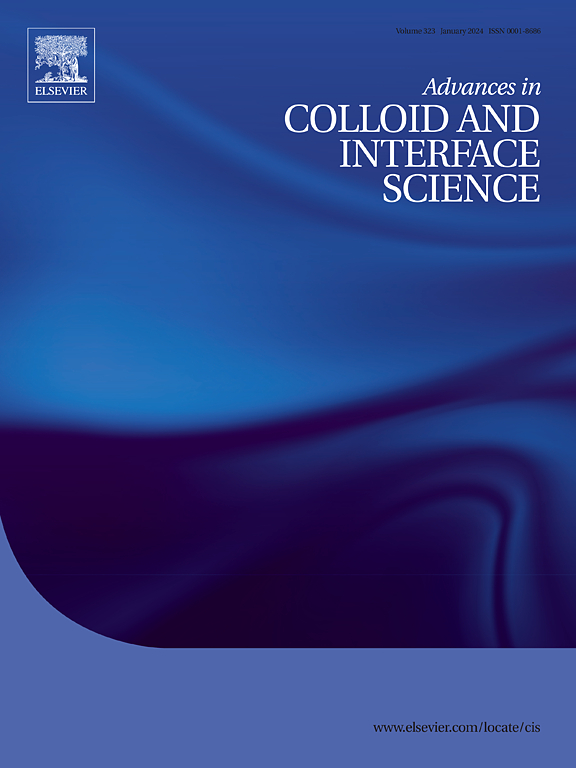在食品研究中开发和应用姜黄素微/纳米载体的最新进展。
IF 15.9
1区 化学
Q1 CHEMISTRY, PHYSICAL
引用次数: 0
摘要
姜黄素的水溶性差,在加工过程中和胃肠道内容易降解,生物利用率低,这给姜黄素在食品科学中的应用带来了挑战。微/纳米载体是克服这些缺点的新兴高效平台。本综述重点介绍姜黄素微/纳米载体在食品研究中的开发和应用的最新进展。姜黄素微/纳米载体的最新开发进展可分为十种基本体系:乳液、胶束、树枝状分子、水凝胶聚合物颗粒、聚合物纳米纤维、聚合物包合物、脂质体、固体脂质颗粒、结构脂质载体和细胞外囊泡。姜黄素微/纳米载体在食品研究中的应用进展可分为四类:着色剂、功能活性剂、保鲜剂和质量传感器。综述表明,微/纳米载体是脂溶性姜黄素的优良载体,所获得的姜黄素负载微/纳米载体在食品科学领域具有广阔的应用前景。本文章由计算机程序翻译,如有差异,请以英文原文为准。

Recent advances in the development and application of curcumin-loaded micro/nanocarriers in food research
The application of curcumin in food science is challenged by its poor water solubility, easy degradation under processing and within the gastrointestinal tract, and poor bioavailability. Micro/nanocarrier is an emerging and efficient platform to overcome these drawbacks. This review focuses on the recent advances in the development and application of curcumin-loaded micro/nanocarriers in food research. The recent development advances of curcumin-loaded micro/nanocarriers could be classified into ten basic systems: emulsions, micelles, dendrimers, hydrogel polymeric particles, polymer nanofibers, polymer inclusion complexes, liposomes, solid lipid particles, structured lipid carriers, and extracellular vesicles. The application advances of curcumin-loaded micro/nanocarriers for food research could be classified into four types: coloring agents, functional active agents, preservation agents, and quality sensors. This review demonstrated that micro/nanocarriers were excellent carriers for the fat-soluble curcumin and the obtained curcumin-loaded micro/nanocarriers had promising application prospects in the field of food science.
求助全文
通过发布文献求助,成功后即可免费获取论文全文。
去求助
来源期刊
CiteScore
28.50
自引率
2.60%
发文量
175
审稿时长
31 days
期刊介绍:
"Advances in Colloid and Interface Science" is an international journal that focuses on experimental and theoretical developments in interfacial and colloidal phenomena. The journal covers a wide range of disciplines including biology, chemistry, physics, and technology.
The journal accepts review articles on any topic within the scope of colloid and interface science. These articles should provide an in-depth analysis of the subject matter, offering a critical review of the current state of the field. The author's informed opinion on the topic should also be included. The manuscript should compare and contrast ideas found in the reviewed literature and address the limitations of these ideas.
Typically, the articles published in this journal are written by recognized experts in the field.

 求助内容:
求助内容: 应助结果提醒方式:
应助结果提醒方式:


